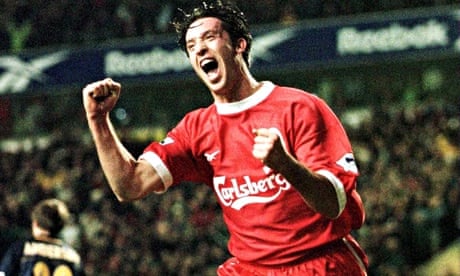It’s a great time to invest in a buy-to-let property. That’s if you believe legendary Liverpool footballer Robbie Fowler, who runs a property empire stretching from Cardiff to Scotland and is encouraging the public to take his £1,000-a-head “property academy” courses to become, like him, a multi-millionaire landlord.
“It’s a fantastic time to buy,” says Fowler, who focuses on the north-west of England. “Prices tumbled during the recession but are starting to rise again. I’m trying to buy a few more myself. Two- or three-bed places are probably perfect,” he adds, as families unable to get on the property ladder are renting instead.
But encouraging buy-to-let will find Fowler few friends among campaign groups such as Generation Rent and PricedOut, who argue that rampant landlordism is destroying the hopes of young buyers.
Figures from Halifax this week revealed a renewed surge in house prices – up 2.7% in one month alone and running at an annualised rate of 9%. Fowler’s belief is that a strong recovery in house prices will give landlords capital gains, as well as enabling them to raise rents – although he warns against being too greedy.
After flirting with horse racing – at one point he and fellow Liverpool footballer Steve McManaman owned 10 racehorses – Fowler ploughed his football earnings into a string of properties, earning him a place in the 2005 Sunday Times Rich List of the 1,000 wealthiest people in the country with an estimated fortune of £28m.
But the controversial striker, who enjoyed biblical levels of affection among Anfield fans – they called him “God” after he shattered Arsenal with the quickest hat-trick in league history – is shy about revealing the true extent of his property investments.
“I’ve got more than 10,” he says. “I’m a private person, I don’t like to disclose everything.” But almost everyone knows he has more than 10. Even the fans on the terraces would sing “We all live in a Robbie Fowler home,” to the tune of Yellow Submarine. Does he have more than 100? “Let’s say I have more than 10 but less than 100,” he adds.
The chant used to cheer him up, he says. “Most players are good at being very selective about what they hear. But I thought it was a good one. It did make me chuckle.”
Most of his properties are around Liverpool (Fowler was born in the Toxteth area of the city) as that makes them easier to manage, he says. But tenants won’t find Fowler knocking on the door to collect the rent. Although the Property Academy carries his name, he admits it’s his wife Kerrie who really controls the business.
“I started investing in property almost by accident. Graeme Souness [former Liverpool captain] put me in touch with a financial adviser who advised me to go into property. Since then, and I’m not embarrassed to admit this, it’s my wife who’s the one who has been wearing the trousers. She’s the boss. She did it all while I was playing. Basically I go out and earn the money. She’s happy with that concept.”
It may explain why Fowler struggles when he’s questioned in detail about property. In the last budget, the chancellor George Osborne announced new taxes which will make buy-to-let less attractive from 2017. “Property investment is not always rosy,” he adds. “I bought a place just outside Cardiff at what I thought was a good price. But when I tried to sell, I got £200,000 less than what I bought it for.”
Like many investors, Fowler talks about his properties without being forthcoming about the mortgage debt that finances them. When pushed, he says the mortgages are “just a bit under” 62-63% of the value of the homes.
Does he acknowledge concerns that buy-to-let landlords are kicking away the ladder from first-time buyers? “Some people can’t afford to buy, so as a landlord you are providing a benefit for other people ... you are providing a service. Some landlords have been greedy, but you certainly won’t get that from me after the upbringing I had in the centre of Liverpool.”
This weekend the Robbie Fowler Property Academy is hosting sessions at the Crowne Plaza Hotel in Birmingham, followed by a week of events at Hiltons in London. But you won’t find Fowler on stage. “I’ve been to a few, but I was never going to go to them all,” he says. Initial sessions are free, with in-depth training for wannabe landlords charged at around £1,000. The academy is, in reality, run by a Florida company, Legacy Education Alliance, which says it promises Fowler students “investment strategies” in “social housing, buy-to-let, lease options and land development.”
Legacy pays to use Fowler’s name and pays him a royalty on revenues it generates. Filings by the company suggest it had revenues of around $20m (£13m) in the UK in 2014, although under half of that was from the Fowler business.
Fowler spends much of his time touring the world as an ambassador for Liverpool Football Club. “It’s the easiest job in the world,” he says. Apart from TV punditry, he works for brands such as Sony Bravia, for whom he’s promoting the concept of homes with games rooms for adults and children to play on PlayStation Now. But his heart remains in football: “I’ve got my coaching badges. I would love to end up being a manager,” he says.



